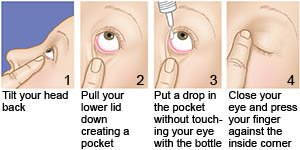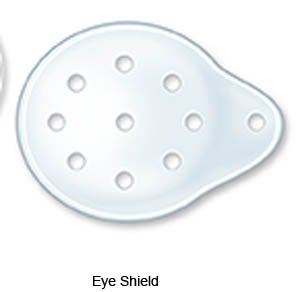Cataract Removal
Medically reviewed by Drugs.com. Last updated on Aug 4, 2025.
Cataract removal is a procedure to remove a cloudy lens from your eye. An artificial lens called an intraocular lens (IOL) is put in its place. This will improve your vision.
DISCHARGE INSTRUCTIONS:
Seek care immediately if:
- You suddenly see flashes or floaters, followed by partial vision loss like a curtain covered your eye.
- Your eye suddenly goes blind.
- You have severe eye pain with eye redness, swelling, new floaters, and more blurry vision.
Contact your ophthalmologist if:
- You have changes in your vision.
- Your eye pain increases.
- Your eye is red, swollen, or draining fluid or pus.
- You have a headache or nausea, or you are vomiting.
- You have questions or concerns about your condition or care.
Medicines:
- Eyedrops contain medicine to help prevent infection and decrease inflammation. Wash your hands before you instill eyedrops. Do not touch the tip of the dropper to your eye. Ask your healthcare provider for more information about how to instill eyedrops.

- Take your medicine as directed. Contact your healthcare provider if you think your medicine is not helping or if you have side effects. Tell your provider if you are allergic to any medicine. Keep a list of the medicines, vitamins, and herbs you take. Include the amounts, and when and why you take them. Bring the list or the pill bottles to follow-up visits. Carry your medicine list with you in case of an emergency.
Follow up with your ophthalmologist within 24 hours and as directed:
You will need to have your eye checked. Write down your questions so you remember to ask them during your visits.
Eye care:
- Wear your eye shield when you sleep to prevent damage.

- Do not rub your eye.
- Keep dust, dirt, and water out of your eye to prevent infection.
- Do not lift heavy objects or bend over. Both can increase the pressure in your eye. Ask your healthcare provider how much weight is safe for you to lift. You may be told not to lift anything heavier than 25 pounds for 3 weeks after your procedure.
- Wear UVB protective sunglasses and a brimmed hat outside to help prevent sun damage to your eyes.
- If you smoke, it is never too late to quit. Smoking can damage your eye and prevent it from healing after your procedure. Do not smoke or let anyone smoke around you. Ask your healthcare provider for information if you need help quitting.
© Copyright Merative 2025 Information is for End User's use only and may not be sold, redistributed or otherwise used for commercial purposes.
The above information is an educational aid only. It is not intended as medical advice for individual conditions or treatments. Talk to your doctor, nurse or pharmacist before following any medical regimen to see if it is safe and effective for you.
Further information
Always consult your healthcare provider to ensure the information displayed on this page applies to your personal circumstances.
